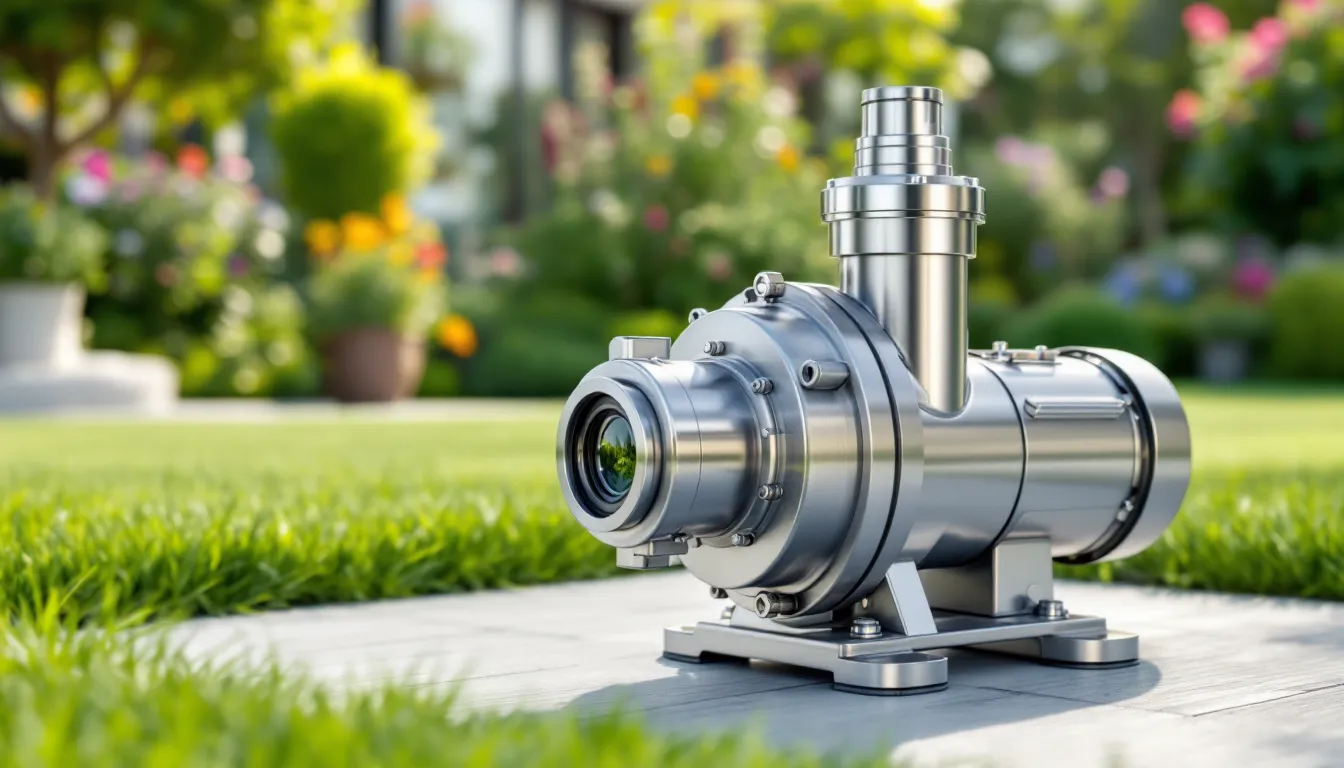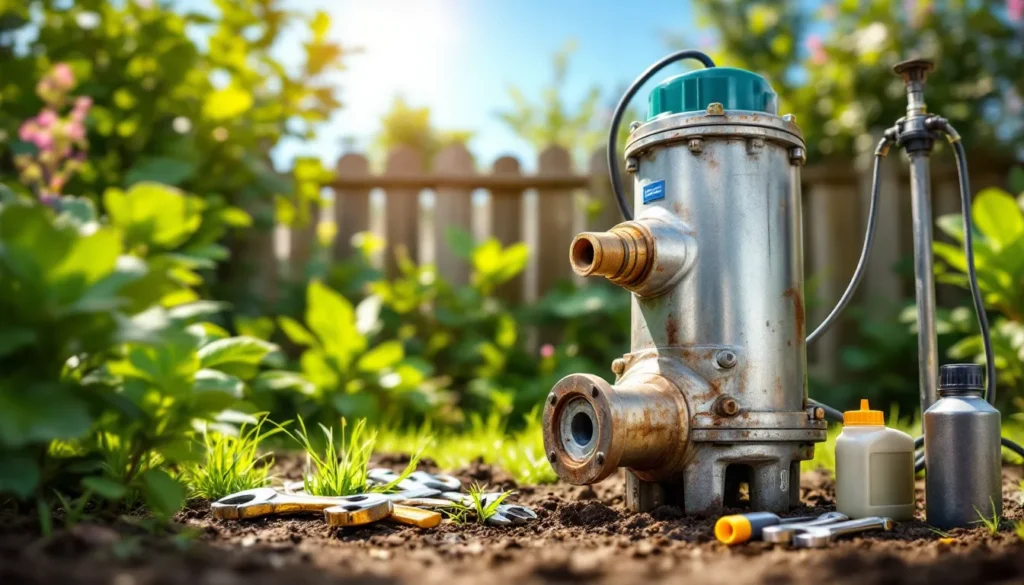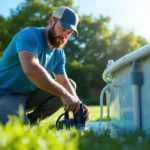Key Takeaways
- Average Lifespan: Water pumps typically last between 8 to 15 years, while commercial pumps may last 5 to 10 years due to higher usage.
- Type of Pump Matters: Submersible pumps tend to have the longest lifespan (10 to 25 years), while centrifugal and diaphragm pumps last about 5 to 15 years, depending on usage.
- Quality of Materials: Pumps made from high-quality materials, such as stainless steel, resist wear and corrosion better, enhancing durability.
- Importance of Maintenance: Regular maintenance, including inspections and cleaning, significantly extends the life of a water pump.
- Signs of Failure: Watch for unusual noises, reduced water pressure, and visible leaks, as these signs may indicate that a pump needs replacement.
- Operational Conditions: The lifespan of a pump can be affected by environmental factors, such as temperature extremes and fluid types, so consider these when assessing pump health.
When it comes to maintaining your home, understanding the lifespan of your water pump is crucial. This essential component keeps your water flowing smoothly, whether it’s for irrigation, heating, or supplying your household. But how long can you expect your water pump to last?
Several factors influence its longevity, from the type of pump you have to the maintenance practices you follow. Knowing what impacts its lifespan can help you make informed decisions about repairs and replacements. In this article, we’ll dive into the average lifespan of water pumps and provide tips to extend their durability, ensuring you get the most out of your investment.
Understanding Water Pumps
Water pumps play an essential role in various systems, including irrigation, heating, and plumbing. Factors influencing a water pump’s lifespan include:
- Type of pump: Different pump types, such as centrifugal, submersible, and diaphragm pumps, offer varying durability. Submersible pumps tend to last longer due to their design and usage.
- Quality of materials: Pumps made from high-quality materials often resist wear and corrosion better than those made from inferior components.
- Maintenance practices: Regular maintenance significantly extends pump life. Checking seals, cleaning filters, and ensuring proper lubrication prevents premature failure.
- Operational conditions: Factors like temperature extremes, fluid type, and pressure can impact longevity. Pumps exposed to harsh conditions may fail sooner.
- Installation quality: Proper installation, including alignment and secure connections, reduces stress on the pump, enhancing its lifespan.
Typically, expect a water pump to last between 8 to 15 years, though some may last longer with careful attention. Understanding these elements helps you make informed choices about care and replacements, ensuring optimal performance for your needs.
Factors Affecting Water Pump Longevity

Water pump longevity hinges on several key factors that influence its lifespan. Understanding these elements helps you make informed decisions regarding your pump’s usage and upkeep.
Quality of Materials
Quality of materials significantly impacts water pump durability. Pumps constructed with high-grade metals and corrosion-resistant components last longer than those made with inferior materials. For example, stainless steel parts resist rust and wear better than plastic counterparts. Choosing a pump with a durable casing and quality seals also prevents leaks and enhances overall performance.
Frequency of Use
Frequency of use plays a crucial role in determining how long a water pump lasts. Pumps used seasonally or occasionally experience less wear compared to those operating continuously. For instance, a pump running daily for irrigation tends to wear out more quickly than a pump used sporadically for draining a pool. Monitoring usage patterns allows you to anticipate maintenance needs and replacements more effectively.
Maintenance Practices
Maintenance practices dictate the overall health and longevity of a water pump. Regular inspections, such as checking seals, cleaning filters, and monitoring for unusual noise or vibrations, help identify potential issues early. Scheduling professional maintenance once a year ensures optimal performance. Neglecting routine care can lead to costly repairs, reducing the lifespan of your pump and diminishing its effectiveness.
Average Lifespan of Water Pumps
Understanding the average lifespan of water pumps helps in planning for repairs or replacements. Various factors influence how long these essential devices last.
Residential vs. Commercial Pumps
Residential water pumps typically last between 8 to 15 years, depending on usage and maintenance. Commercial pumps often experience greater wear due to higher demand and continuous operation, potentially decreasing their lifespan to around 5 to 10 years. Regular inspections and maintenance can optimize performance in both settings, but commercial pumps generally require more frequent checks due to harsher conditions.
Common Types of Water Pumps
- Centrifugal Pumps: These pumps usually last 5 to 15 years and are efficient for various applications. They often struggle with debris but perform well in clean water situations.
- Submersible Pumps: Designed to work underwater, submersible pumps typically last 10 to 25 years. Their sealed construction makes them more resilient to damage, especially in sewage and groundwater applications.
- Diaphragm Pumps: Lifespan ranges from 5 to 15 years. These pumps handle different fluids well but require regular maintenance for optimal operation.
- Jet Pumps: Common in residential settings, jet pumps last around 8 to 15 years. Their lifespan depends significantly on the quality of installation and water conditions.
- Gear Pumps: Known for durability, gear pumps can last between 10 to 20 years. Their robust design allows them to handle high-viscosity fluids effectively.
Regular maintenance, appropriate usage, and quality materials significantly influence the longevity of these various pump types, allowing you to maximize their performance.
Signs That Your Water Pump Needs Replacement
Recognizing the signs of a failing water pump helps you prevent further damage to your system.
- Unusual Noises: Listen for grinding, rattling, or whining sounds from the pump. These noises often indicate mechanical issues.
- Reduced Water Pressure: Noticeable drops in water pressure can signal that the pump isn’t functioning properly, which may require replacement.
- Frequent Cycling: If the pump turns on and off more often than normal, it could suggest a malfunction, necessitating a closer inspection.
- Visible Leaks: Monitor for leaks around the pump area. Persistent leaks may indicate that seals or gaskets have failed.
- Increased Energy Bills: High electricity usage can stem from an inefficient pump. An unexpected spike in utility costs might warrant a pump assessment.
- Poor Water Quality: Discoloration or abnormal odor in the water can signal pump issues. If the water quality diminishes, consider a pump evaluation.
- Age of the Pump: Consider the pump’s age. If it approaches or exceeds its expected lifespan, replacement might be the best option.
Identifying these signs early enables you to address issues promptly, ensuring your water system operates efficiently.
Conclusion
Understanding the lifespan of your water pump is crucial for maintaining a reliable water system. By being aware of the factors that influence longevity you can take proactive steps to extend its life. Regular maintenance and timely inspections can help you identify potential issues before they escalate.
Keep an eye on performance indicators and don’t hesitate to replace your pump when necessary. This approach not only saves you money in the long run but also ensures your home’s water supply remains consistent and efficient. Investing in a quality pump and caring for it properly will pay off with years of dependable service.


